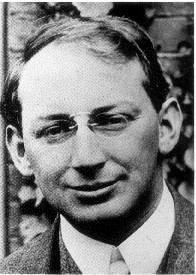

"...patients have an exceedingly refined sensitivity for the wishes, tendencies, whims, sympathies and antipathies of their analyst, even if the analyst is completely unaware of this sensitivity. Instead of contradicting the analyst, accusing him of certain errors or blunders, the patients identify themselves with him; only in rare moments of an hysteroid excitement, i.e. in an almost unconscious state, can they pluck up enough courage to make a protest; normally they do not allow themselves to criticize us, such a criticism does not even become conscious in them unless we give them special permission or even encouragement to be so bold. That means that we must discern not only the painful events of their past from their associations, but also - and much more often than hitherto supposed - their repressed or suppressed criticism of us."
About Sándor Ferenczi (1873-1933)
Ferenczi was born July 7, 1973, in Miskole, Hungary, one of a family of twelve children. He recieved his M.D. in Vienna in 1894, then worked in Budapest as chief neurologist at the Elizabeth Poorhouse. He was later appointed to the Royal Court of Justice as an expert psychiatrist. He first met Freud on February 8, 1908, after being introduced to Freud by Philip Stein.
Ferenczi was a close colleague of Freud's, and they exchanged many letters which have been published as The Correspondence of Sigmund Freud and Sandor Ferenczi,1908-1914 and The Corresondence of Sigmund Freud and Sandor Ferenczi, 1914-1919. Ferenczi is known as one of the most daring experimenters of the early psychoanalysts, and his methods and ideas were very controversial. Ferenczi eventually broke with Freud, arguing that the sexual abuse of children by adults was the cause of neurosis. Such claims were a daring contradiction of Freud's view that memories of sexual abuse were based on instinct-driven fantasies. Ferenczi also anticipated the humanistic movement in psychotherapy by emphasizing that the analyst could not be a mere detached observor of the analysand. Rather, Ferenczi felt that the analyst must have an attitude of genuine caring in order to assist the patient's healing caused by past abuse. Ferenczi's technique of therapy reflected these ideals, and he endeavored to provide his patients with what he felt was the love and affection they had lacked in early object relations. For this to be possible, Ferenczi felt, the analyst cannot be in the position of an authority which creates a hierarchal relationship between analyst and analysand. Ferenczi went as far as experimenting with a technique he called "mutual analysis," where he and the patient would take turns lying on the couch and free-associating. This technique--perhaps needless to say--did not work out very well, and he quickly abandoned it.
Ferenczi has influenced many subsequent psychotherapists. He was analyst for such well-known figures as Melanie Klein, Michael Balint, and Clara Thompson. He, along with Harry Stack Sullivan, influenced Thompson's interpersonal approach to psychotherapy, and he undoubtably had an impact on Klein's understanding of the interpersonal dynamics between mother and infant. Balint is known for extending Ferenczi's original innovative approach to analysis. Balint, like Ferenczi, felt that analysands are seeking within the therapeutic relationsip to cope with early interpersonal traumas. Specifically, Balient felt that the analysand seeks a kind of unconditional love from the therapist, which he refered to as "primary object love."
Links
Ferenczi page at Freudian
Slips
"Sándor
Ferenczi and Patients’ Perceptions of Analysis" by P. Myers
"Reconsidering
Communicative Psychoanalysis" by P. Myers
"Changes in
Psychoanalytic Technique: Progressive or Retrogressive?" by Manuel Furer
"We are
Living--Nebbish--in a Great Time" (book review) by Ferenc Erõs
"Correspondence
of Freud and Ferenczi" by Jack J. Spencer
"Psychoanalysis
and Cognitive Science" by Robert E. Haskell
"Jeffrey
Masson and Freud's Seduction Theory" by Allen Esterson
"Psychoanalysis and
Psychotherapy: A Revision" by Merton Gill
"Narcissistic Pathology
of Everyday Life" by Nancy McWilliams and Stanley Lependorf
"Theory
and Practice of Lesbianism" by Alison Brookes and Laurel Guymer
"The Dissociative Child:
Afterword" by Joyanna L. Silberg
"The Compulsion
to Repeat the Trauma" by Bessel A. van der Kolk
"The Authority of Logic
and the Logic of Authority" by Louis A. Fourcher
"The Psychoanalysis of
Dissociative States" by Daniel Paul
"Hypnosis
in Psychosomatic Medicine" by Gerard V. Sunnen
"Whose Body Is It
Anyway? Understanding and Treating Psychosomatic Aspects of Eating Disorders"
by Kathryn Zerbe
"Memories of
Sexual Betrayal" by Richard Gartner
"On Being Invisible
in the Mental Health System" by Ann Jennings
"Oedipus Reviewed:
A Classic Case of Child Abuse" by Peter Loader
"Communication:
The Social Matrix of Supervision of Psychotherapy" by Robert McCormick
Sigmund Freud's
Clark Lectures in 1909 (with Ferenczi present)
Photo
of Sigmund Freud at Clark with Ferenczi and colleagues
Photo of
Ferenczi with Freud and colleagues (Ferenczi is third from left)
Recommended Books:
The
Clinical Diary of Sandor Ferenczi
by Judith Dupont (Editor), Michael Balint (Translator), Nicola Zarday
Jackson (Translator)
Our Price: $17.95
The
Correspondence of Sigmund Freud and Sandor Ferenczi : 1908-1914
by Sigmund Freud, Sandor Ferenczi
Our Price: $59.95
The
Correspondence of Sigmund Freud and Sandor Ferenczi : 1914-1919 (Vol 2
: 1914-1919)
by Sigmund Freud, Sandor Ferenczi
Our Price: $59.95
The
Development of Psycho-Analysis (Classics in Psychoanalysis, Monograph 4)
by Sandor Ferenczi
Our Price: $27.50
Thalassa
: A Theory of Genitality
by Sandor Ferenczi
Our Price: $25.95
Sandor
Ferenczi : The Psychoanalyst of Tenderness and Passion
by Arnold W. Rachman
Our Price: $60.00
RETURN TO PSYCHOANALYSIS
AND BEYOND PAGE
RETURN TO MYTHOS & LOGOS HOME
PAGE
Copyright 2000, Brent Dean Robbins